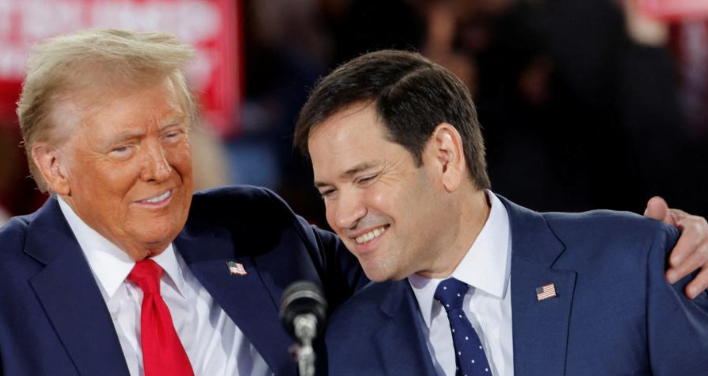
Panama Shifts Course: Distances Itself from China Amid U.S. Pressure
Panama Ends Belt and Road Agreement with China Amid U.S. Pressure
Panama City, Panama – Panamanian President José Raúl Mulino has announced that Panama will not renew its agreement with China’s Belt and Road Initiative (BRI) following a high-level meeting with U.S. Secretary of State Marco Rubio. The move signals a shift in Panama’s foreign policy, reducing China’s influence in the region while reinforcing ties with the United States.
The decision comes as a significant setback for Beijing’s economic expansion in Latin America. In 2017, Panama became the first country in the region to formally join the Belt and Road Initiative, a global infrastructure strategy aimed at expanding China’s trade networks through massive investments in roads, ports, and other critical infrastructure.
U.S. Influence and Trump’s Stance
Rubio’s visit to Panama underscored Washington’s growing concerns over China’s increasing foothold in Latin America. The U.S. has long been wary of China’s economic activities near strategic waterways, particularly the Panama Canal, which handles about 6% of global trade. The canal is especially critical for U.S. shipping and military logistics.
During the meeting, Rubio reiterated past warnings from former U.S. President Donald Trump, who previously criticized Panama for its deepening economic ties with China and its canal toll policies. Trump had expressed concerns that Panama’s relationship with Beijing could lead to security risks and potential treaty violations regarding the management of the canal.
“The U.S. will not allow foreign influence to jeopardize free trade and security in the region,” Rubio stated. He suggested that if Panama did not address concerns about unfair canal fees and its dealings with China, Washington could consider taking stronger actions, including revisiting its role in overseeing canal operations.
Economic and Strategic Considerations
Panama’s decision to exit the Belt and Road Initiative is seen as a recalibration of its economic partnerships. While China has invested billions in Panama’s ports, logistics hubs, and energy projects, there has been increasing pressure to balance these ties with U.S. interests. The Panama Canal, which generates significant revenue through tolls—sometimes exceeding $500,000 per vessel—remains a point of contention in global trade and diplomacy.
There have been concerns that deeper cooperation with China could put Panama at odds with the 1977 Panama Canal Treaty, which guarantees neutrality of the canal and prohibits any foreign military presence. Some U.S. officials believe that China’s growing investments in the canal region could be a step toward military or political influence, a claim that Beijing has denied.
China’s Reaction and Future Implications
China has not yet issued an official response to Panama’s withdrawal from the Belt and Road Initiative. However, experts anticipate that Beijing will seek alternative strategies to maintain its economic presence in the country, possibly through private sector investments or bilateral trade agreements.
Despite this shift, Panama still maintains economic ties with China. Beijing remains one of the largest users of the Panama Canal, and trade between the two nations has grown substantially in recent years. Nevertheless, Panama’s decision is expected to strain diplomatic relations between the two countries in the short term.
On the other hand, the U.S. is likely to deepen its economic and security cooperation with Panama. Washington has already expressed interest in increasing investments in Latin American infrastructure through initiatives like the Americas Partnership for Economic Prosperity (APEP), which aims to counter China’s influence.
Conclusion
Panama’s withdrawal from the Belt and Road Initiative marks a turning point in its international relations, aligning more closely with the United States amid growing geopolitical tensions. While the long-term effects of this decision remain uncertain, it reflects a broader trend of countries reevaluating their commitments to China’s global infrastructure program under U.S. pressure.
As Panama navigates its next steps, it will have to carefully balance economic opportunities with strategic alliances, ensuring that its role as a global trade hub remains stable and beneficial for all parties involved.





